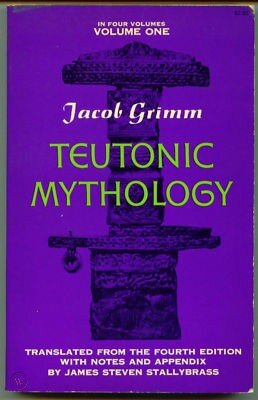Remembering Jacob Grimm
The mighty Jacob Grimm.
Glenn Rahman’s excellent two-part look at Viktor Rydberg’s work on the Volund legends reminded me that Jacob Grimm was born on this date two hundred and thirty-five years ago. Jacob was the elder brother of the well-nigh legendary “Brothers Grimm”, the two of which laid the foundations for future studies of Teutonic folklore and mythology.
Jacob grew up poor, but earned a law degree through sheer hard work and intellect. In their spare time, he and his brother, Wilhelm, collected the folktales of the German countryside, preserving a priceless legacy. They were also keenly interested in the Germanic languages.
That combination of philology and anthropology led Jacob to publish Deutsche Mythologie, which I encountered in its English translation as Teutonic Mythology. While it does suffer somewhat from the fact that it was written nearly two centuries ago, I urge anyone who considers himself a serious student of Teutonic/Nordic mythology to read it. It has been called “encyclopedic” and it undoubtedly is. Unlike some volumes on roughly the same topic written by other authors, Grimm did not concentrate almost solely upon recorded legends and myths. Jacob also took into account the tales and folk-customs of rural people, in which can be heard faint echoes of the ancient beliefs. In my opinion, it is the best way to approach such a vast and shadowy subject.
When Keith Taylor and myself were fleshing our hypothetical biography of Robert E. Howard’s occult scholar, Friedrich Wilhelm von Junzt, for the REH: Two-Gun Raconteur blog, a Brothers Grimm connection presented itself—which Keith spotted. All of the clues provided by REH—and H.P. Lovecraft—pointed to von Junzt being a German aristocrat, and quite likely one from the region of Hesse-Kassell. As it turns out, the Grimms were librarians at the royal library in Kassell during the early 1800s. We had a young von Junzt befriend those two mighty scholars of the Old Ways and had him help them in a minor fashion. We also had the two Grimms—decades later—be among the few attendees at von Junzt’s untimely funeral. Historically, they were good-hearted men who paid their debts.
So, raise a glass to the nativity of a great scholar and a good man. We would be much the poorer today without his tireless efforts and keen mind.
Alles Gute zum Geburtstag, Jacob.


